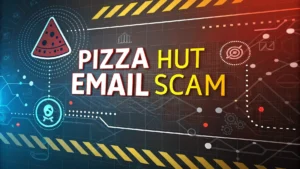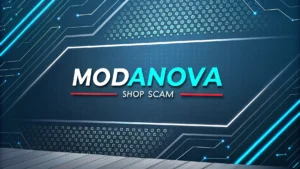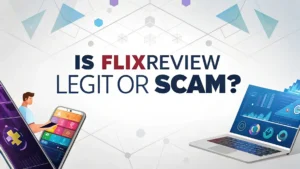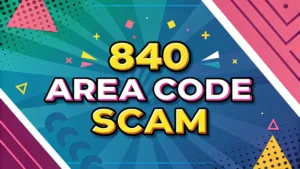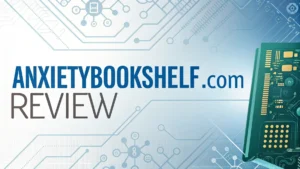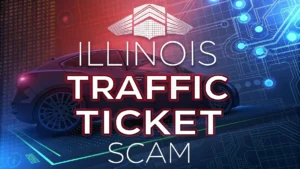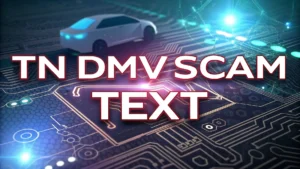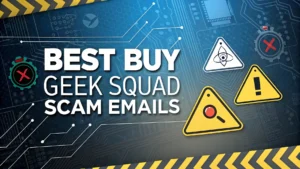I-PASS is an electronic toll collection system widely used by drivers in Illinois, allowing them to pay tolls seamlessly without stopping at toll booths. However, a growing number of I-PASS users have recently reported receiving suspicious text messages claiming they owe money for unpaid tolls.
These messages are part of a phishing scam targeting not only I-PASS users but also drivers in other states using similar systems like E-ZPass. Authorities, including the Illinois Tollway and state officials, have issued warnings about these fraudulent texts, urging drivers to stay cautious and informed.
What is the I-PASS Scam Text?
The I-PASS scam involves text messages that falsely claim the recipient has unpaid tolls and must take immediate action to avoid hefty fines or legal consequences. These messages often appear to come from legitimate sources, such as the Illinois Tollway, and include a link to a fake website designed to steal personal and financial information. Once a victim enters details like credit card numbers or Social Security numbers on these fraudulent sites, scammers can use the information for identity theft or financial fraud.
Examples of Scam Texts
Scammers employ various tactics to make their messages appear credible. Common characteristics of these texts include:
- Originating from unusual numbers: They may come from out-of-state or international phone numbers rather than official tollway contacts.
- Grammatical errors: The messages might contain typos or awkward phrasing, a red flag for phishing attempts.
- Urgent language: They often pressure recipients with threats of immediate fines or legal action.
- Suspicious links: The texts include URLs leading to fake websites that mimic the official tollway site.
Here are two examples of what these scam texts might look like:
- “Illinois Toll Road: Your vehicle has an unpaid toll bill for 2024. Click here to pay the past due bill: [fakewebsite.com]”
- “Illinois Tollway Services: You owe $12.50 in unpaid tolls. Settle now at [fraudlink.com] to avoid extra fees.”
What to Do If You Receive a Suspicious Text
If you receive a text claiming you have unpaid tolls, take the following steps to protect yourself:
- Do not click any links or reply: Clicking links can lead to malicious websites or download malware onto your device.
- Delete the message: Remove it from your phone immediately to avoid accidental interaction.
- Verify your account independently: Check your I-PASS account status by visiting the official Illinois Tollway website at www.illinoistollway.com or calling their customer service line at 1-800-UC-IPASS (1-800-824-7277). Use only contact information from official sources, not from the text.
- Report the scam: File a complaint with the FBI’s Internet Crime Complaint Center (IC3) at www.ic3.gov to help authorities track and combat these scams.
The Illinois Attorney General and other officials have stressed that legitimate government agencies, including tollway authorities, rarely use text messages as their initial method of contact to request payments or personal information. If you’re unsure about a message, always verify it through official channels.
Broader Impact and Similar Scams
This scam isn’t unique to Illinois. Similar fraudulent text messages have targeted E-ZPass users in states like New York, Pennsylvania, and New Jersey, indicating a coordinated effort by cybercriminals to exploit electronic toll system users nationwide. The tactics remain consistent: urgent demands for payment, fake websites, and threats of penalties.
If you’ve already clicked a link or provided information, act quickly to minimize damage:
- Run a security scan: Update your device’s antivirus software and scan for malware.
- Notify credit agencies: Place a fraud alert with Equifax, Experian, or TransUnion, and consider freezing your credit to prevent unauthorized access.
- Monitor accounts: Watch your bank and credit card statements for suspicious activity and report any issues to your financial institution immediately.
Stay Vigilant
The I-PASS scam text highlights the importance of staying cautious with unsolicited messages, especially those demanding immediate action or payment. By recognizing the signs of phishing scams and verifying claims through official sources, you can protect yourself from falling victim. Stay informed, report suspicious activity, and keep your personal and financial information secure in an age of ever-evolving cyber threats.


